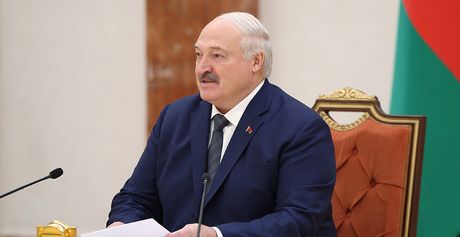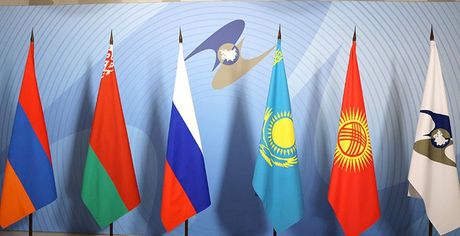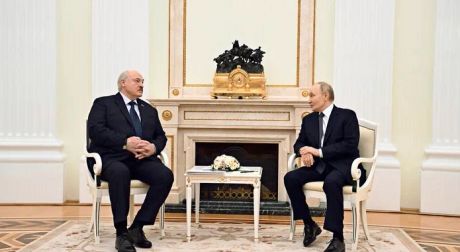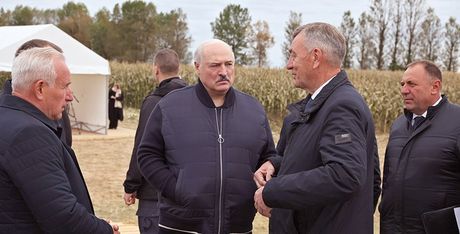Vladimir Putin held a meeting of the State Council on the state agricultural policy
16:55, 27 December
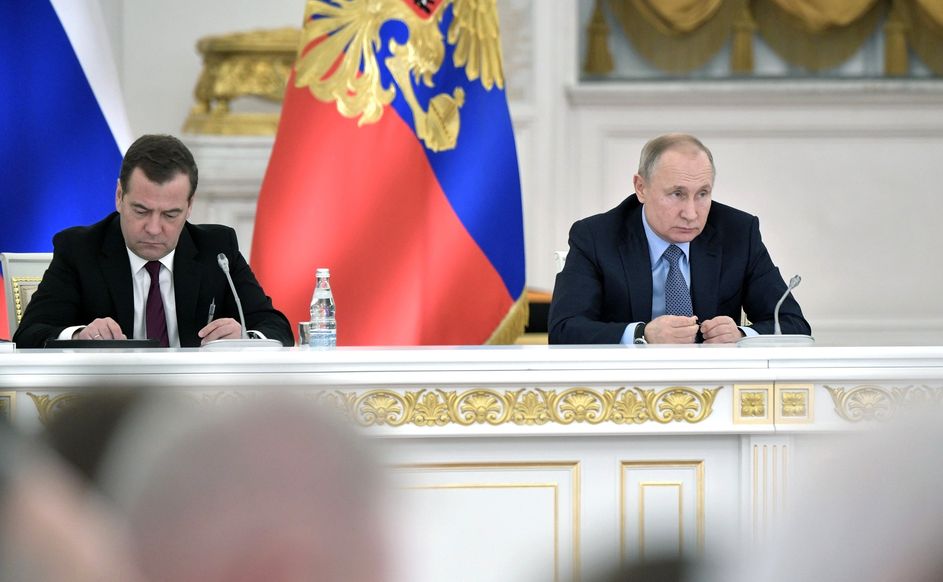
Photo: kremlin.ru
The agenda included effective agricultural production and development of rural areas.
- Share on Facebook
- Share on VK
- Share on Twitter
The main reports were presented by Altai Territory Governor Viktor Tomenko and Agriculture Minister Dmitry Patrushev.
* * *
President of Russia Vladimir Putin: Good afternoon, colleagues.
Today we have an important issue on our agenda; we will discuss the state agricultural policy.
You have probably noticed that recently, ahead of our meeting, I have met with representatives of the agricultural complex in Adygeya. The conversation was lively, direct and very interesting: the people who work on land, in rural areas, are like that everywhere.
My goal was to talk to people working in agriculture ahead of our meeting to hear from them on how they regard what the state is doing to develop agriculture. And you know, in general, most of the feedback was positive.
But there are also issues that require our special focus, such as the economics of agricultural production, comfortable living conditions and people’s prosperity and, of course, the further promotion of Russian agriculture as an advanced and globally competitive sector.
Let us look at the situation in the industry and its potential contribution to the nationwide goals set for the agro-industrial complex, as well as what else the state can and must do for the millions of rural workers and their families, for those who feed the country and who live and work in rural areas. We know that they are working honestly, efficiently and effectively, because we can see their achievements and take pride in them.
The average growth rates in agriculture were recently higher than throughout the Russian economy. Even when the GDP was declining, our farmers reported growth. In January to November of this year, agricultural production increased by another 4.1 percent. It is notable that not only large holding companies and firms, but also small and family farms are gradually increasing their contribution to the total performance. It has grown from 7.2 percent in 2010 to 12.9 percent this year.
This year we can report a record harvest of sugar beet, sunflower seeds and soybeans. Preliminary forecasts predict a bumper grain harvest as well, around 121 million tonnes. An annual grain harvest of over 100 million tonnes is becoming a stable trend. Once seen as a record-breaking harvest, it is becoming the norm. Just for the record: we harvested 113.3 million tonnes of grain in 2018 and over 135 million tonnes in 2017. Russia’s largest crop harvest in the Soviet period was 127.4 million tonnes in 1978.
It should be said in this connection that we have exceeded the targets set for a number of key commodities in the Food Security Doctrine. Under it, the share of domestic products on our market should have reached 95 percent this year, but the current figure is already 99.7 percent. The target for sugar was 80 percent, but the actual figure will be 95.5 percent. The target for meat and meat products was 85 percent; the currently estimated figure is 92.6 percent. And the planned figure for fish products was 80 percent whereas it will be 82.2 percent.
Agricultural exports, including both the export of agricultural raw materials and added-value goods, will have exceeded $24 billion this year, and our goal for 2024 is $45 billion. It looks like an attainable goal.
At the same time, I am certain that the sector cannot develop, reach new levels and attract young and qualified personnel unless we deal with a pivotal issue. What issue is that? The quality of life in rural areas. Our rural areas are still lagging behind in terms of social development, everyday comfort and infrastructure development. I would like to reiterate that this gap is especially obvious against the backdrop of impressive successes of the Russian agro-industrial sector.
According to estimates, the general level of availability of all kinds of public amenities in rural areas, including water and heating supply, gas and the housing and utility system is a little more than 34 percent, while it is almost 80 percent in cities. The situation with other social, education and healthcare facilities, as well as roads, is even worse.
One of the most crucial problems is the level and quality of primary medical care in villages. In all, huge money will be allocated for this purpose all across Russia. As you know, we have found an additional 550 billion rubles. The regions’ task is to conclude preparations of relevant regional programmes. Let me remind you that they should be adopted by July 1, 2020. They must also include the opinions of rural residents, outline clear measures in construction, major repairs and renovation of buildings, finding personnel for rural medical and obstetric centres, district hospitals and outpatient clinics, and fitting them out with new equipment.
Another system-wide problem is the average salary in agriculture. It is only two thirds of the national average. I want to draw the attention of employers to this. You should think more about the people who stand behind your success and move the industry forward.
I would like to add that more than half, approximately 53 percent of people with low incomes live in rural areas. Therefore, our priority, nation-wide task is to reduce and overcome poverty in rural areas.
Agriculture in rural areas does not have a relevant national project. But I want to emphasise that their interests must be taken into account in each of our projects, and the plans and activity of various agencies muse be coordinated.
In May 2019, state programme was adopted for the comprehensive development of rural areas. People have noticed it, they understand it and are expecting results. It is aimed at supporting initiatives on the ground, that is, projects that are crucially important for specific villages, their residents and local businesses.
On December 23, many meeting participants in Adygeya asked me whether this programme could be used to support projects focused on the building of infrastructure, tourism, agriculture specialist training and so on. However, less money than planned is envisaged in the 2020 budget. Naturally, when the budget is adjusted, many priority issues are addressed. But I think you will agree with me that rural areas and the topics I have just outlined are undoubtedly among our priorities.
It is obvious that we must improve the effectiveness, performance and the basic state programmes for agricultural development. We should continue subsidising Russian producers of agricultural equipment. I have already issued instructions, and it is important and necessary both for agriculture and for Russian industry in general, for our engineering and other related sectors.
I ask you to develop measures to reduce the cost of electricity for farmers and agricultural cooperatives. People also ask about this. I know that we have discussed this and it is clear why the cost for small enterprises is higher than for large ones; this is voltage-related, clearly. But it is also clear that we must support farmers, and they do not have any other way but to rely on the state, so we must find a solution. I will not go into detail now, but there are details.
Colleagues, Russia’s food security must not only be guaranteed by production volumes but also by quality. Promising research in plant selection, cattle-breeding and new fodder are very important. Comprehensive measures must be taken to ensure veterinary security.
In general, the sustainable development principle remains the main guideline for us, which means aiming at making a significant, noticeable improvement in the quality of life in rural areas. Efficient use of resources and priority of environment-friendly agricultural technologies that will not destroy our natural potential for generations to come mean producing and promoting Russian green brands. I spoke about this in my Address to the Federal Assembly.
This is a global trend. And we definitely have some competitive advantages here. Of course, our products on the global markets can be safe, environmentally friendly and of high quality. And we must maximise this competitive edge.
Of course, what I have just outlined are only a number of issues we must focus on in the development of agriculture and rural areas. I hope that during our meeting today we will discuss everything in detail.
<…>
Vladimir Putin: Thank you very much.
I would like to thank you for your active participation in our joint work today. This means that the topic we have been discussing today is really important and concerns the interests of the entire country, almost all the Russian regions.
It is important for many of our citizens. We know these numbers. Almost 40 percent are in some way connected to work in rural areas. Not just farmers, but everyone who works in the villages in culture, education, healthcare, agricultural sciences and so on. We have enormous development potential here without a doubt. There are a lot of issues and a lot of problems. But there also are proposals on how to solve them.
I presume that not only will we prepare good, smart, workable proposals following the work of the State Council working group and our discussion today, but that they will be executed both at the federal and regional levels.
I would like to wish you a happy New Year. All the best.
Thank you very much.



